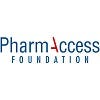Digital technology key to delivering healthcare financing for UHC
Good health is a precondition for inclusive development, and it is becoming increasingly clear that to achieve this goal in Africa, we must rethink the current way healthcare is financed and delivered.
Many health systems in Africa are affected by low trust and high risk, leading to a cycle of low quality and low demand for care, and inadequate access. Healthcare is mostly post-paid and too few investments are made. As a result, out-of-pocket payments continue to drive 100 million people into poverty globally per year.
With a global ambition to achieve universal health coverage (UHC) by 2030, we would like to share our thoughts on what is needed to finance and deliver healthcare that truly leaves no one behind.
A Moment for UHC
We strongly support the United Nation’s UHC declaration that all individuals must have access to high-quality health services, no matter where they live or how much money they have. In January of 2017, the 17 Sustainable Development Goals came into force at the United Nations, with a call to achieve UHC by 2030.
Our approach is aimed at making transformational changes in the health system, reflecting market context and need. We are committed to building stronger health markets that ensure efficient and sustainable financing of health and give everyone access to healthcare that they can trust—healthcare that delivers better outcomes.
At the same time, the unprecedented rise of mobile phones and all the new possibilities that this technology brings is transforming Africa in ways no one could have imagined a decade ago. About 10% of GDP transactions in sub-Saharan Africa occur via mobile payments compared to less than 2% in Europe and the US. To truly realize UHC, we believe that we must draw upon the revolutionary potential of digital and mobile technology, and a combination of public-private partnerships.
Digital Opportunity
Digital transformation is about creating entirely new business models that put consumers at the center of the customer experience. On-demand platforms like Uber, Booking.com and Airbnb have mastered this transformation by bringing together demand and supply, in even remote regions, to many people, on an unprecedented scale.
By digitizing the core processes of health systems, and by leveraging the mobile connection to individuals, we believe that health systems can be transformed. This conviction is based on several key principles.
1. Mobile health wallets give every person access to care at a low cost and help protect them against health expenses by allowing for the mobilization and earmarking of private and public resources for health that empower both the individuals and their families.
2. This technology has the potential to pay healthcare providers more quickly, directly, and in certain cases according to their performance. Payments can also be disbursed according to pre-defined conditions and outcomes, determined by factors such as a patient’s income.
3. Digital platforms in combination with mobile health wallets have great potential for establishing and managing pooled funding from all sorts of payers, including local governments, the Global Fund, GAVI and GFF, to support people directly. Mobile tools can help assess a household’s socioeconomic status and enable targeted subsidies for households as well as monitor whether subsidies reach those who need financial support.
4. Mobile also delivers data-based insights for decision-making that can increase the value of available healthcare funds and reshape UHC policy-making arguments. Membership data, healthcare utilization and outcomes data can all be captured at both the patient and facility level. Yes, there are challenges related to data ownership and privacy and finding solutions must be part of our joint challenge. Once collected, this information can be used to improve the management of funds and diseases while offering much-needed market transparency to encourage third parties to invest in health infrastructure in places like Kenya or Tanzania.
No One Can Deliver UHC Alone
At PharmAccess, we believe that strengthening health markets in regions like sub-Saharan Africa requires a dynamic blend of public and private partnerships—both in designing innovative programs and in bringing those innovations to scale.
This is why we work with banks to provide loans to health clinics, with telecommunications companies to offer mobile health solutions, with pharmaceutical companies to design innovative programs for treating non-communicable diseases, and with local governments to bring us closer to reaching universal health coverage.
Keep the Promise
By 2030, the world’s 54 poorest countries will face an annual deficit of $176 billion in paying for health care. Building a sustainable health system that works for everyone takes time, but mobile technology provides a unique opportunity to mobilize financing and accelerate the process in a transparent and equitable way — including everyone, everywhere against low marginal costs while pooling money and resources to scale faster and better.
As part of our commitment to achieving UHC, we are calling for all multilateral health, development and humanitarian agencies to embrace the digital opportunity and develop partnerships to fully utilize the benefits of mobile and digital technology to enhance the financing and delivery of health in the interest of all people.
